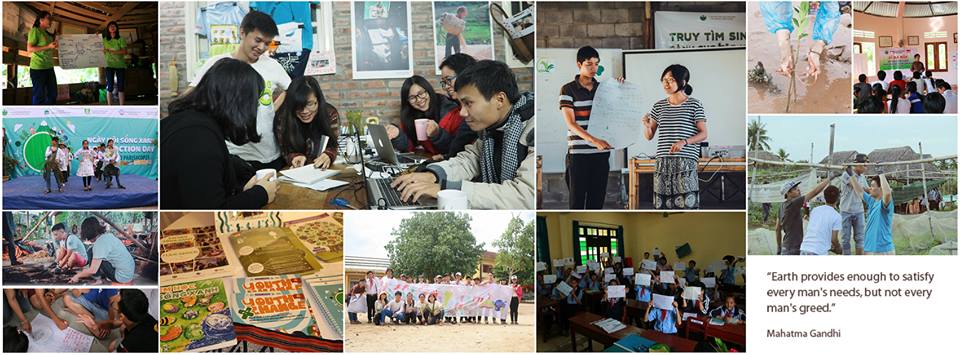Workshop Announcement: People right-based natural forest management
Background
For recent decades, along with the rapid growth of economy,
From the 1990s, the Government of Vietnam (GOV) issued a series of policies on people’s rights to approach, manage and use forestry land and resources. Especially after Decree 02/CP, more and more households and local communities received allocated land and natural forests from the state for this purpose. Some models on people right-based natural forest management have been implemented in different areas with supports from GOV and foreign organisations. Significant achievements have been acquired. However, there are shortcomings in the enforcement of policies and implementation of these models in various areas. For example, state regulations are unclear and incomplete. People are not fully aware of their rights and obligations. They lack required knowledge and capacity to willingly and effectively participate in natural forest management and protection. Therefore, people’s rights of access to forests and forestland resources as well as their access to sciences, techniques, capital and the market have not been fully utilised. Much valuable indigenous knowledge on management and use of forest and forestland has been lost. People have not really benefited from their receipt and management of forests as much as they have expected.
In order to effectively realize people’s rights in forest management and protection, these models should be maintained and replicated. This, in turn, points to the need to make regional additions and adjustments to these models. Organising a workshop on “People right-based natural forest management” is necessary. This workshop will facilitate exchanges and sharing of information and experience among communities, state management agencies and other stakeholders. It also advocates policies and contributes to sustainable forest management in
Objectives:
· To share information and experience on models of the people’s rights-based natural forest management. This will strengthen local people’s capacity and access to and to encourage their participation in natural forest management and protection.
· To synthesis and make recommendations, appropriate solutions to advocacy for the people’s rights-based natural forest management in
Contents:
Presentations will focus on analysis and discussion to share experiences and dialogues on the real situation, shortcomings, advantages, difficulties, and challenges of and propose recommendations and solutions to the following:
· Results obtained from the natural forest management of people, signification and its value as well as the shortcomings and recommendations to enhance and expand the application of community forest management.
· The system of policies related to people’s rights to access, manage and use forestland and natural forests.
· The forest management mechanism of the community and coordination and management activities among stakeholders, especially the role of joint enterprises
· Support measures in terms of sciences, technologies, capital, and markets.
Activities
· Preparation: scenarios, materials, contacts, liaison works, and others.
· Press release and other necessary documents will be prepared for communication of mass media agencies.
· Presentations, answers, questions and summary will be presented in the workshop
· Organising the field trip to model sites in
· Printing and dissemination of the workshop proceedings (English-Vietnamese) nationwide
Outputs:
· 70 participants, including representatives of local authorities and communities in model sites; communities in potential areas for these models; scientists and state agencies to exchange and share experience.
· 50 participants to visit models.
· 70 sets of materials to deliver to conference participants
· 01 report on the results and recommendations of the workshop will be sent to stakeholders, especially the policy makers at local level and central
· 200 copies of the workshop proceedings (English-Vietnamese) including workshop contents, keynote speech and specific presentations and recommendations. These will be disseminated to relevant communities, organizations and agencies nationwide.
Expected outcomes:
· 70% local representatives enrich experience and knowledge for on-site application.
· 50% representatives being policy makers facilitate and create mechanisms for model dissemination and replication.
· 60% representatives being scientists provide technical support for communities in model application.
· 70% people who receive the conference proceedings refer to this material in their relevant works.
Participation: 70 participations
· International organisations: UNDP, SIDA, SNV, WWF, Hervetas, CARE, …
· Government bodies in the related field
· National NGOs and Some Scholars and Researchers in the related field
· CBOs of some models
· Communication agencies
Time and place: 2 days of August 20-21, 2010 in Thua Thien-Hue, including:
– 1 day in conference hall
– 1 day for field visit to Phu Mau village, Huong Phu commune, Nam Dong district, Thua Thien Hue
Organisation agency:
· Main responsibility: C&E and CEACE
· Other co-organizers: Forestry Science – Technology Association of Thua Thien Hue province
· Sponsor: Rosa Luxemburg Stiftung –
